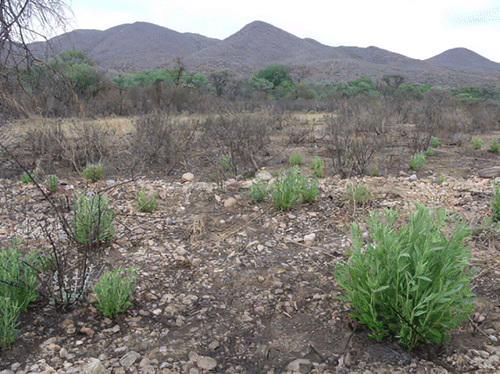Namibia continues to face a number of pressing environmental challenges, which include bush encroachment, biodiversity loss, and climate change. Bush encroachment involves the replacement of native grasses by encroaching bush species. Environment and tourism minister Pohamba Shifeta said about 45 million hectares of Namibia’s grassland savannah are estimated to be affected by bush encroachment. Shifeta made the remarks during the opening of the biomass fair industry conference which took place last week.
He also launched the national strategy for the sustainable management of bush resources (2022-2027). This, Shifeta said, has severe negative impacts on biodiversity, soil, water availability, land productivity, and the livelihoods of the people, which are largely dependent on the country’s vast natural savannah ecosystem. “Yet our situation with regard to bush encroachment also offers numerous economic opportunities. The bush can be used as a basis for value chains that contribute to improved domestic economic development, add value to export products, create employment and income in rural areas, and can be an innovation driver for future green technologies,” he indicated. The biomass fair took place under the theme ‘Discovering a New Decade for Biomass’.
The UN General Assembly has proclaimed 2021-2030 as the Decade of Ecosystem Restoration. The environment ministry called on farmers, private companies, and other stakeholders to seize this opportunity to restore land that is degraded through bush encroachment. “For us, it is critical that this is done sustainably, is based on value addition, and is to the benefit of our local communities,” Shifeta urged. The national strategy on the sustainable management of bush resources (2022-2027) provides a framework to ensure that bush resources are used sustainably with value-added and that the development of the bush biomass sector benefits all Namibians and the broader environment. Therefore, he said it is essential to ensure that bush control efforts contribute to achieving important international commitments on deforestation and afforestation, land degradation and desertification, climate change mitigation and adaptation, as well as conservation of biological diversity. –anakale@nepc.com.na



